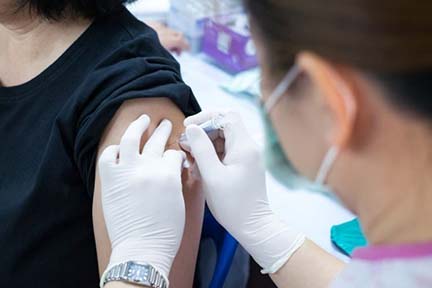
Press Release FOR IMMEDIATE RELEASE: Nov. 29, 2021 CONTACT: Bob Wheaton, 517-281-1701, wheatonb@ COVID-19 Omicron variant illustrates importance of getting vaccinated, including booster doses, wearing masks, other mitigation strategies MDHHS is monitoring to identify any presence in Michigan, but has not yet detected new variant LANSING, Mich. – While the COVID-19 Omicron variant has not been detected in the state, the Michigan Department of Health and Human Services is monitoring for it and advising residents that the presence of variants makes it even more important to get vaccinated, including the booster does to increase protection, wear masks and take other precautions. “Ensuring that as many Michiganders as possible are vaccinated remains the best protection we have against COVID-19 – including variants of concern.” said Dr. Natasha Bagdasarian, Michigan’s chief medical executive. “We are asking Michiganders to continue to use critical mitigation measures, such as getting vaccinated and getting boosters when eligible, wearing a mask, and getting tested regularly. Increased transmission fuels the development of more variants of concern.” The CDC has declared Omicron – which emerged in South Africa – to be a variant of concern. There appears to be evidence that it is more transmissible, based on preliminary information The MDHHS Bureau of Laboratories has re-analzyed the genetic sequencing data from 31,000 positive COVID-19 samples sequenced in its lab and has identified no cases of the new variant “It’s still early, and there is much that we need to learn about the Omicron variant,” said Dr. Alexis Travis, senior deputy director of MDHHS’s Public Health Administration. “We know what protection measures are needed to reduce the spread of COVID and prevent additional mutations of the virus. We need Michiganders to continue to do their part to keep themselves and their loved ones safe.” In addition to getting vaccinated and wearing masks – particularly indoors and in crowded areas – other things people can do to protect themselves and their loved ones include:
MDHHS has issued a public health advisory that all Michiganders, regardless of vaccination status, should wear a mask in indoor public settings and those who are not fully vaccinated or who are immunocompromised should avoid large crowds or gatherings. |

